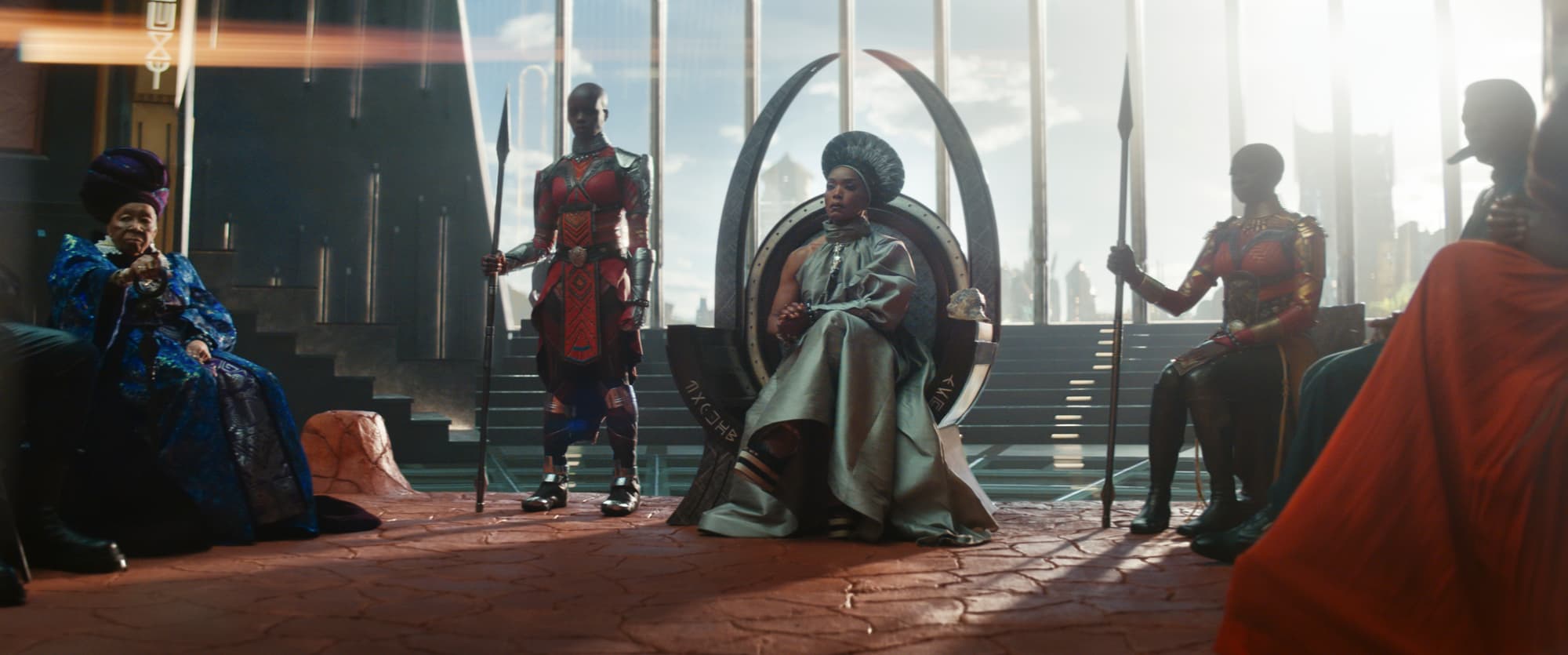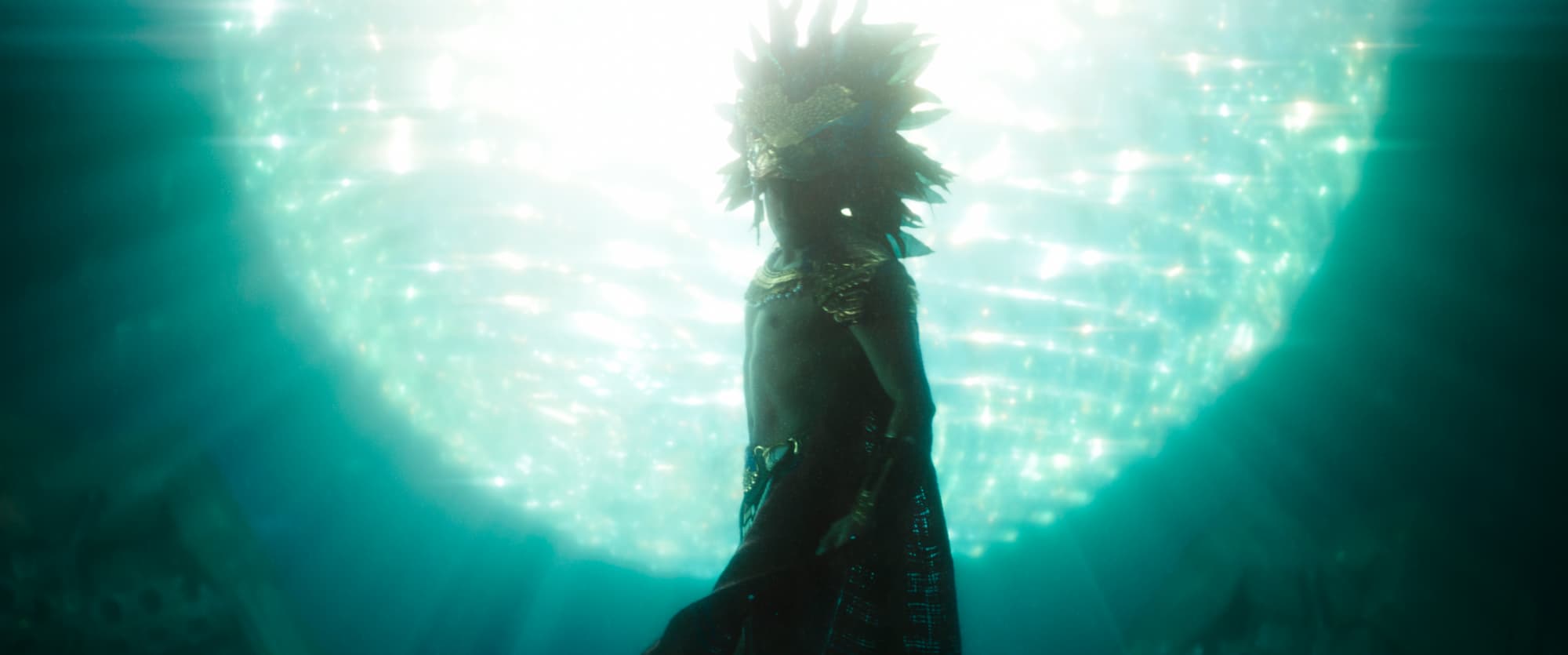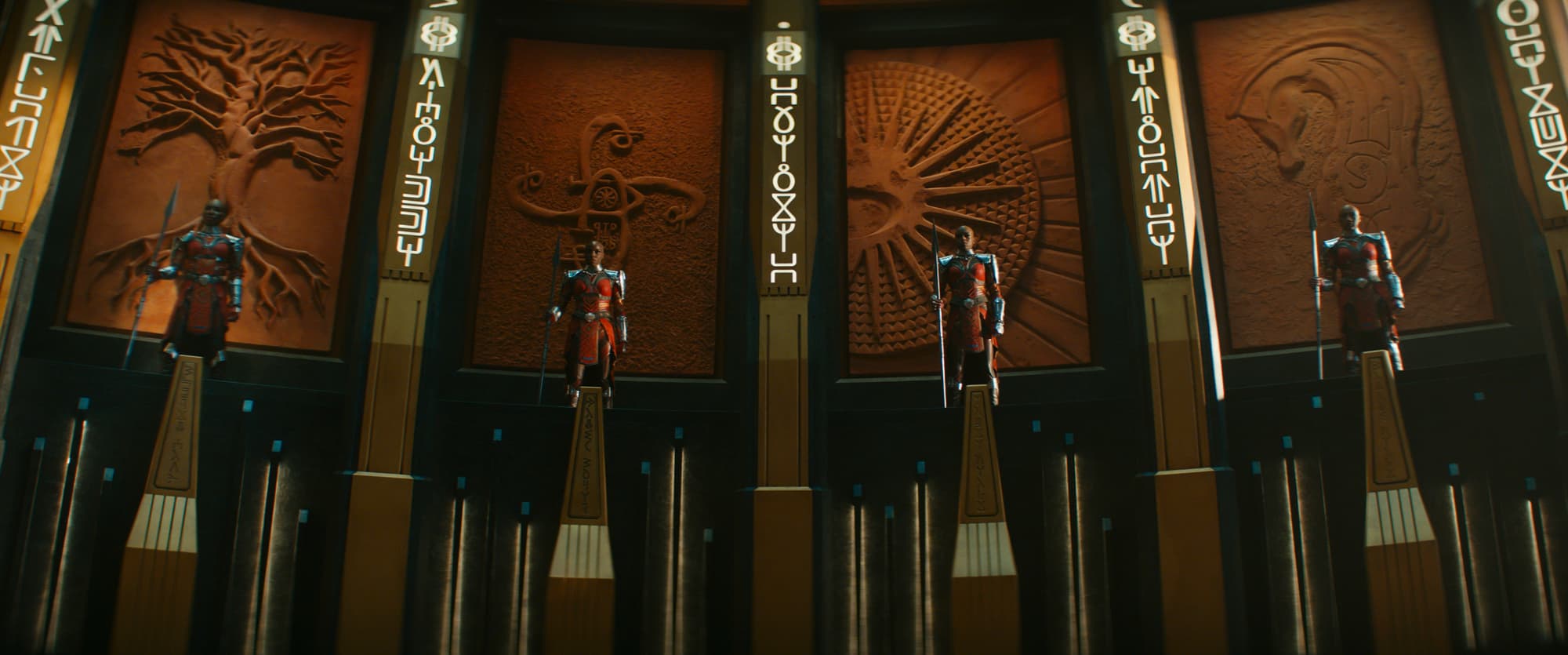 |
| Image courtesy of Marvel |
While the film does serve as a fitting testimonial to Boseman’s impact, the loss feels more like a bookend than it does an anchor for a story that could have been a thoughtful meditation on losing a loved one, and what comes next. But Wakanda Forever glides over that and introduces some compelling factors that end up being nothing more than that, just tools that surface thematically without a satisfying payoff. It feels like Marvel Studios-sponsored therapy, if your therapist put on an action movie in the middle of your three-hour session.
This would have been more of a widely-accepted statement a few years ago, but Marvel movies are usually the cream of the crop; they have higher budgets and oftentimes attempt more complexity than your average studio film, and if they are holding themselves to a certain standard, I will judge them on a different scale than I would most films. One could argue said Marvel standard has taken a nosedive since Avengers: Endgame (especially with the influx of countless Disney+ series), but I think there’s still a lot to love and respect about what Marvel is trying to do. They just may be doing too much, and Wakanda Forever is proof of that. Usually, with movies that are nearly three hours long, there’s too much content jammed into it and it feels overstuffed. Oddly enough, Wakanda Forever fails to justify its runtime in a completely different way; there’s not enough story to fill it up, and everything feels much more drawn-out than it should.
This isn’t to say that there’s not a lot going on — it’s a Marvel movie, that’s a given. But for the Phase Four concluder expected to tie up some pretty major threads while introducing some new ones, it’s surprisingly lacking.
I actually really love the moves that Wakanda Forever makes in expanding our view of the “real world” in the MCU. We don’t often see bureaucracy at work (the superheroes, after all, are far more interesting), but Marvel has a way of making foreign policy politics legitimately interesting because these are conversations that massive world powers would be having in a world full of super-powered beings that could take over the planet if they wanted to. Captain America: Civil War touched on it briefly with the Sokovia Accords, but there’s a lot of untapped potential there that I hope is at some point explored in more detail.
 |
| Image courtesy of Marvel |
I wish I had more positive things to say about Wakanda Forever, especially considering that its predecessor is one of the best films that Marvel has to offer. I will give it credit for at least trying to stray from the Marvel formula, even if it isn’t entirely successful by the end of the film. I have massive respect for the fact that it was even made under such unfortunate extenuating circumstances, and find myself disappointed that I wasn’t able to love it as much as I wanted to.
 |
| Image courtesy of Marvel |
Black Panther: Wakanda Forever is in theaters now.

You summed it up so well Rowan - I was slightly dissatisfied and couldn’t really pinpoint it but you did!
ReplyDelete